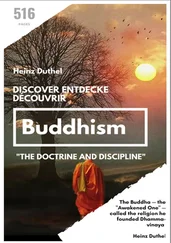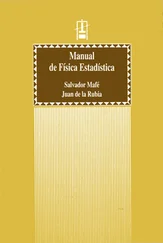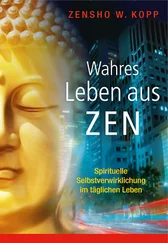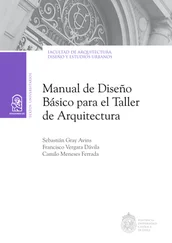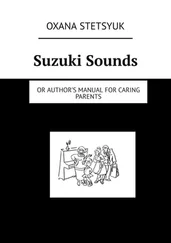Teitaro Suzuki - Manual of Zen Buddhism
Здесь есть возможность читать онлайн «Teitaro Suzuki - Manual of Zen Buddhism» весь текст электронной книги совершенно бесплатно (целиком полную версию без сокращений). В некоторых случаях можно слушать аудио, скачать через торрент в формате fb2 и присутствует краткое содержание. Жанр: Религиоведение, Религия, Руководства, на английском языке. Описание произведения, (предисловие) а так же отзывы посетителей доступны на портале библиотеки ЛибКат.
- Название:Manual of Zen Buddhism
- Автор:
- Жанр:
- Год:неизвестен
- ISBN:нет данных
- Рейтинг книги:3 / 5. Голосов: 1
-
Избранное:Добавить в избранное
- Отзывы:
-
Ваша оценка:
- 60
- 1
- 2
- 3
- 4
- 5
Manual of Zen Buddhism: краткое содержание, описание и аннотация
Предлагаем к чтению аннотацию, описание, краткое содержание или предисловие (зависит от того, что написал сам автор книги «Manual of Zen Buddhism»). Если вы не нашли необходимую информацию о книге — напишите в комментариях, мы постараемся отыскать её.
Manual of Zen Buddhism — читать онлайн бесплатно полную книгу (весь текст) целиком
Ниже представлен текст книги, разбитый по страницам. Система сохранения места последней прочитанной страницы, позволяет с удобством читать онлайн бесплатно книгу «Manual of Zen Buddhism», без необходимости каждый раз заново искать на чём Вы остановились. Поставьте закладку, и сможете в любой момент перейти на страницу, на которой закончили чтение.
Интервал:
Закладка:
As Gensha ordinarily tested his monks with this statement, a monk who was staying for some time with him one day accosted him when he came up to the Dharma-hall, and asked: “Will you allow me to present my way of reasoning about your sermon on the three invalids?” Gensha said, “Yes, you may go on.” Whereupon the monk remarked, “Fare thee well, O master!” and left the room. Gensha said, “Not that, not that.” We can see that this monk has fully grasped Gensha.
Later on, Hogen (Fa-yen, died 958) made this statement: “When I listened to Master Jizo (Ti-tsang) making reference is to this monk's remark, I was enabled to understand Gensha's sermon on the three invalids.”
I ask you now. “[Here is a puzzle for you, O monks!] If that monk did not understand Gensha, how was it that Hogen made this statement of his? If that monk understood Gensha, why did the latter declare, ‘Not that, not that’?”
One day Jizo said to Gensha, “I am told that you have given a sermon on the three invalids, is that so?” Gensha answered, “Yes.” Jizo then said, “I have my eyes, ears, nose, and tongue; what treatment would you give me?” Gensha was quite satisfied with this request on the part of Jizo.
When Gensha is understood, you will realize that his spirit is not to be sought in words. You will also see that those who understand make themselves naturally distinguishable from the rest.
Later when a monk came to Ummon (Yun-men, died 949) and asked him about Gensha's sermon, Ummon was ready to demonstrate it in the following way, for he thoroughly understood Gensha. Said Ummon to the monk, “You make bows.” When the monk rose from making bows, Ummon poked him with a staff, and the monk drew back. Said Ummon, “You are not blind then?” Ummon now told him to approach, and the monk approached. Said Ummon, “You are not deaf then?” Finally, he said, “Do you understand?” “No, master”, being the reply, Ummon remarked, “You are not dumb then?” This made the monk grasp the point.
If this monk of Ummon's had any sort of understanding about Gensha, he would have kicked up the master's chair when he was told to make bows, and no more fussing would have been necessary. In the meantime let me ask you whether Ummon and Gensha both understood the problem in the same way, or not. I tell you that their understanding is directed to one point. That the ancient masters come out among us and make all kinds of contrivance is because they wish to see somebody bite their hook and be caught up. They thus make bitter remarks in order to have us see into the great event of this life.
My own master Goso (Wu-tsu, died 1104) had this to say: “Here is one who can talk well but has no understanding; here is another who understands but is unable to talk about it. When these two present themselves before you, how will you distinguish the one from the other? If you cannot make this discrimination, you cannot expect to free people from their bondage and attachment. But when you can, I will see to it that, as soon as you enter my gate, I put on a pair of sandals and run through the inside of your body several times even before you realize. In case, however, you fail to have an insight in this matter, what is the use of hunting around for an old bowl? Better be gone!”
Do you wish to know what is the ultimate meaning of these complications in regard to the blind, deaf, and dumb? Let us see what Seccho says about it.
Seccho's Remarks in Verse
Blind, deaf, dumb! [—Even before any word is uttered.—The three sense-organs are perfectly sound.—Already finished is one paragraph!]
Infinitely beyond the reach of imaginative contrivances! [—Where do you wish to hunt for it?—Is there anything here which permits your calculations?—What relationship have they after all?]
Above the heavens and below the heavens! [—Perfectly free is the working of Truth.—Thou hast said!]
How ludicrous! How disheartening! [—What is it that is so ludicrous, so disheartening?—Partly bright and partly dark.]
Li-lou does not know how to discriminate the right colour. [—Blind fellow!—A good craftsman leaves no trace.—Blind to the very core!]
How can Shih-k'uang recognize the mysterious tune? [—Deaf in his ears!—There is no way to appreciate the greatest merit.—Deaf to the very core!]
What life can compare with this?—Sitting alone quietly by the window, [—This is the way to go on.—Do not try to get your livelihood in a cave of ghosts.—Break up all at once this cask of coal tar!]
I observe the leaves fall and the flowers bloom as the seasons come and go. [—What season do you think it is now?—Do not regard this as doing-nothingness.—Today, morning is followed by evening; tomorrow, morning is followed by evening.]
Seccho now remarked: “Do you understand, or not?” [—“Repeated in the gatha.”]
An iron bar without a hole! [—Coming up with your own confession!—Too bad that he was released too easily,—“Then he struck.”]
Yengo's Comment on Seccho
“Blind, deaf, dumb!
Infinitely beyond the reach of imaginative contrivances!”
In this, Seccho has swept everything away for you what you see together with what you do not see, what you hear together with what you do not hear, and what you talk about together with what you cannot talk about. All these are completely brushed off, and you attain the life of the blind, deaf, and dumb. Here all your imaginations, contrivances and calculations are once for all put an end to, they are no more made use of this is where lies the highest point of Zen, this is where we have true blindness, true deafness, and true dumbness, each in its artless and effectless aspect.
“Above the heavens and below the heavens!
How ludicrous! how disheartening!”
Here Seccho lifts up with one hand and with the other puts down. Tell me what he finds to be ludicrous, what he finds to be disheartening. It is ludicrous that this dumb person is not after all dumb, that this deaf one is not after all deaf; it is disheartening that the one who is not at all blind is blind for all that, and that the one who is not at all deaf is deaf for all that.
“Li-lou does not know how to discriminate the right colour.”
When he is unable to discriminate between blue and yellow, red and white, he is certainly a blind man. He lived in the reign of the Emperor Huang. He is said to have been able to discern the point of a soft hair at a distance of one hundred steps. His eye-sight was extraordinary. When the Emperor Huang had a pleasure-trip to the River Chih, he dropped his precious jewel in the water and made Li fetch it up. But he failed. The Emperor made Ch'ih-kou search for it, but he also failed to locate it. Later Hsiang-wang was ordered to get it, and he got it. Hence:
“When Hsiang-wang goes down, the precious gem shines most brilliantly;
But where Li-lou walks about, the waves rise even to the sky.”
When we come up to these higher spheres, even the eyes of Li-lou are incapacitated to distinguish which is the right colour.
“How can Shih-kuang recognize the mysterious tune?”
Shih-kuang was son of Ching-kuang of Chin in the province of Chiang in the Chou dynasty. His other name was Tzu-yeh. He could thoroughly distinguish the five sounds and the six notes, he could even hear the ants fight on the other side of a hill. When Chin and Ch'u were at war, Shih-kuang could tell, by merely quietly playing on the strings of his lute, that the engagement would surely be unfavourable for Chu. In spite of his extraordinary sensitiveness, Seccho (Hsueh-t'ou) declares that he is unable to recognize the mysterious tune. After all, one who is not at all deaf is really deaf in his ears. The most exquisite note in the higher spheres is indeed beyond the ear of Shih-kuang. Says Seccho: “I am not going to be a Li-lou, nor to be a Shih-kuang, but what life can compare with this?—Sitting alone quietly by the window,
Читать дальшеИнтервал:
Закладка:
Похожие книги на «Manual of Zen Buddhism»
Представляем Вашему вниманию похожие книги на «Manual of Zen Buddhism» списком для выбора. Мы отобрали схожую по названию и смыслу литературу в надежде предоставить читателям больше вариантов отыскать новые, интересные, ещё непрочитанные произведения.
Обсуждение, отзывы о книге «Manual of Zen Buddhism» и просто собственные мнения читателей. Оставьте ваши комментарии, напишите, что Вы думаете о произведении, его смысле или главных героях. Укажите что конкретно понравилось, а что нет, и почему Вы так считаете.



